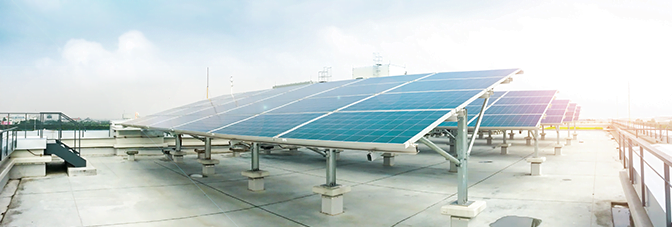IT has been a difficult few years for South African fuel retailers. The market has been shrinking since 2016, and COVID-19 has accelerated this trend. Alongside a slowdown in economic activity as a result of national lockdowns, lifestyles have changed. More people working from home and increased computing and network penetration mean less traveling. This suggests that even as economies begin to recover, demand for fuel is likely to lag.
Since the price of fuel is regulated, and retailers are given a fixed cents-per-litre margin, it’s a volume-driven business, and reduced demand is making it tough for fuel retailers. So, what can they do to cut costs and become more self-sufficient?
One option is to embrace advances in energy technology. The rise of fuel retail has come with increasing demands on energy supplies. Refrigeration, in particular, is an energy-hungry process. But fuel retailers and forecourt operators in South Africa face two acute challenges in this regard: high energy costs, and low energy certainty.
Electricity is expensive, and its supply uncertain. In addition to load shedding, many areas are structurally power constrained, and an aging infrastructure continues to add pressure to the grid. South Africans have lived with this reality for many years, and retailers of all types have invested in diesel generators. But they are costly, noisy and inefficient.
Grid-tied solar systems are simple, comprising nothing more than solar panels and an inverter linked to the municipal electrical grid. The panels convert sunlight into useable alternating current when it’s available. They aren’t connected to batteries, and so switch back to the municipal grid at night or when the sun is obscured. During the day they can easily produce enough energy to power fuel pumps, a retail store and an administrative backend.
Capital investment of R500 000 to R1 million in these types of systems will typically allow an owner to save 30-50% of their energy costs. This coupled with incentives such as the Section 12B tax benefit, which allows for the tax deductibility of certain assets used in the production of renewable energy, means that payback periods are shorter than ever before. Regulations have also relaxed, and suppliers of these systems will be able to guide purchasers through the process of registering with municipal grids, and with health and safety requirements.
The worldwide shift towards electric vehicles (EVs) and other alternative fuel technologies is slow but accelerating rapidly.
More alternative-fuel vehicles on the roads will place demands on fuel retailers; some obvious and some less so. Batteries will be required to address spikes in demand, especially in the first phases of electrical vehicle adoption, and provision made for LNG or hydrogen fuelling capacity where warranted. But charging an electric vehicle is not like pouring petrol into a tank. It takes time: Tesla’s most powerful chargers, the 150 kW Supercharging stations, take 30-40 minutes to charge today’s Tesla Model S to 80% capacity.
Forecourts will increasingly be built to accommodate longer visits, becoming convenience hubs where refuelling is offered as one service amongst many. Shopping, entertainment, and pick-up services (such as online retailer lock boxes) will proliferate. Your children will play while you work and your EV charges. Partnerships with retailers, restaurants, and quick-service food chains will be key to developing convenience ecosystems, and they’ll all be tied together through digital networks and associated payment and reward schemes.
The forecourt of the future will probably look remarkably different. For owners and operators, preparing for this future begins with taking a clear-headed look at their current energy circumstances. An appraisal of energy cost and availability allows them to take control over these variables, giving them an advantage when planning for the continued sustainability and cost effectiveness of their businesses.
